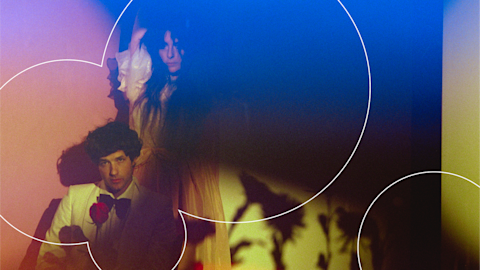YUNGBLUD refuses to stay quiet. In 2018, the Yorkshire, England native released his debut album, 21st Century Liability, marrying pop-punk and hot-button political topics with tracks like “I Love You, Will You Marry Me,” a statement on corporate greed, and “Machine Gun (F**k The NRA),” a comment on American gun culture. That same year, the singer-songwriter, born Dominic Harrison, livestreamed his attendance at the student-led March for Our Lives rally against gun violence, inspiring his fans—who he describes as mates and fellow misfits—to use their voices as well.
Since then, the 22-year-old has released his 2019 EP, the underrated youth, and increasingly uses his social media platforms as a call to action, most recently while attending multiple Black Lives Matter protests in Los Angeles. Now, he’s set to release his sophomore record, led by the provocative, scream-along single “Strawberry Lipstick.” Speaking to Spotify about mobilizing his fanbase, Harrison—in his Brit-punk snarl—discussed how he’s initiating real change by prioritizing community and culture over everything else.
Spotify for Artists: What was the inspiration for “Strawberry Lipstick”?
YUNGBLUD: All YUNGBLUD ever was to me was about culture. Building a culture around the idea that if the world doesn't want to accept you, we're just going to build another one where we can live and exist together. A world where the freak is accepted, and no matter what sexuality you are, what color you are, what shade you are, what opinions you may have, you will always be heard here.
When I was younger, the world didn't want to know me. The world didn't want to understand what I had to say. It really made me frightened. It’s important to me because this song single-handedly saved my existence. A lot of people were telling me to go in a more "poppy" commercial direction that would appeal to the masses. They were talking from a perspective of not understanding me. Everyone was trying to normalize me—I didn’t want to be f**king normal. I was like, “You want f**king normal? Look at this. I’m dropping a song, I’m going to be in a Union Jack dress with my bulldog.” Just saying, for people who don’t know about us, “Welcome to the family,” and for people who do know about us, “Put your f**king seatbelt on ‘cause we’re about to go into fifth gear.”
How do you balance an authentic connection with your community while growing your fanbase?
Even though there are many of us, there is one. Our souls are connected. There's a wire running out of my arm into millions of these kids’ hearts and then they're running back because we understand each other when no one else does. I ain't arsed about hits or charts ‘cause that’s just numbers to me. All I care about is how many people I walk out to. I want a stadium full of mates—that's what I call them. I FaceTime them all the time, and I will be outside at the venue, even if it’s an arena, because I wouldn’t be here without them. They make me feel heard, liberated, excited, unified, and myself. Everyone's got this thing in common. It's not me, it's this ideology. YUNGBLUD isn't Dom from Doncaster with red hair and pink socks—YUNGBLUD is something that Dom from Doncaster in red hair and pink socks connects to.
Did using your platform to mobilize your fanbase come naturally to you?
I was s**t on social media first. I was shy—I got signed because I wanted to do rock music. Then someone very special to me said, “Put that camera up and when you look down the lens, you're looking into someone's eyes.” As soon as he said that to me, I was like, OK, I can do this. I run my social media—no one is allowed to touch it. That’s how we have a conversation. You can tell if someone else is posting for someone else—it's not a conversation. All I want to do is tell the truth. I might be wrong sometimes and with movements in terms of sexuality and race, sometimes I'm f**king wrong. I love that our community uplifts each other to go, “No, that's actually not right. We should do this,” and it’s great. We're becoming better people and building a world that is going to be better.
How can artists balance their desire to be political as a public person while releasing music?
If you are not liked by nobody, then no one's going to like you. It doesn't have to be, "I am a political activist," but say something because that's how someone's going to have a conversation with you. If you have nothing to say, then you're not going to be talking for very long. I love my fanbase because they get my little bits of inflections about society. In "Strawberry Lipstick," one of the lyrics is "They're gonna lock me in the closet, but I'm coming out/Singing, ‘F**k all the oppression and self-doubt.’" That was a comment on sexuality and me being confused by my own sexuality. Then in the second bit, it says "I can't breathe.” I was very caught up in the BLM movements in Los Angeles and that's about that. The chorus is, "Take it easy, take it easy, take it easy on me.” The world is mad right now. We all want to be like, “Just take it easy.” It's all about having a conversation with people because artists got into my head and made me feel like they knew what I was thinking that hadn't even met me, so I'm just trying my best to do that—let other people know that it's all going to be alright.
-Erica Campbell

